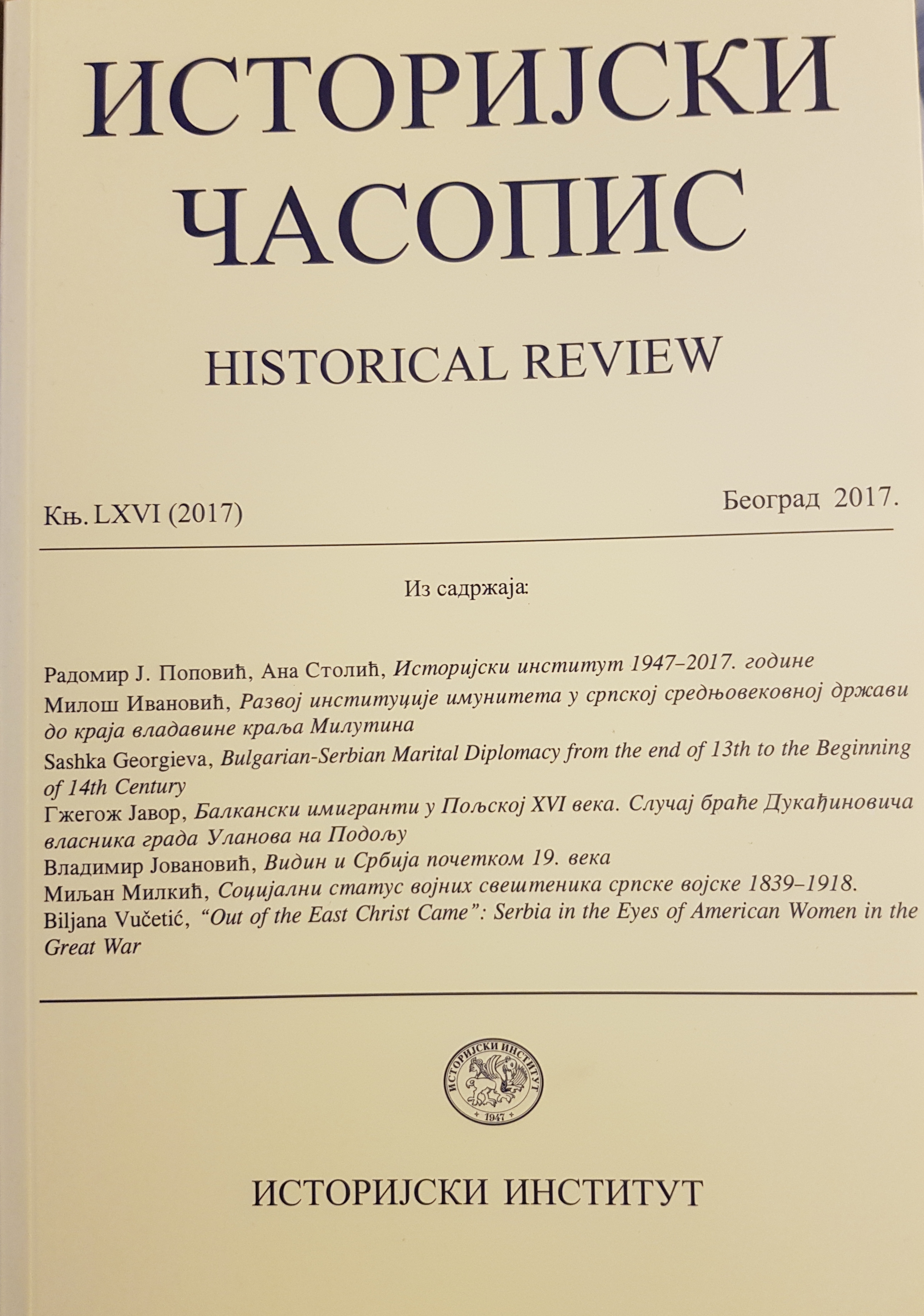Плаћање и награђивање дипломата обласних господара у Босни
Payments and Awards of Diplomats of Local Magnates in Bosnia
Author(s): Aranđel SmiljanićSubject(s): History, Middle Ages
Published by: Istorijski institut, Beograd
Keywords: Diplomats; local magnates; Bosnia; Dubrovnik; Venice; payments; gifts; awards; promises; negotiations; material wealth
Summary/Abstract: Due to the lack of adequate historical testimonies, we know little about the manner and the extent to which local magnates in Bosnia paid for the work of their diplomatic representatives. It is known that they were giving them money when sending them to missions, which the representatives would spend on the mission expenses. The question remains open as to whether they kept some of that money or had to return all what remained to the lords. It is possible that they were paid after completing a mission, as well as that they might have received regular ‘wages’. Some cases of awarding land estates are also known. We know much more about the gifts that the envoys would receive after a completed mission, from the party that they negotiated with. It is natural that the other party (most often Dubrovnik) richly awarded the envoys if the results of negotiations were favourable for them. Otherwise, less generous gifts would be given, only for the sake of respecting the diplomatic courtesy. Regardless of how much the value of gifts varied from one mission to another, long¬lasting engagement in diplomacy enabled envoys to get rather rich for the time. The most highly valued among gifts was money, which in several cases could be invested for profit in the Dubrovnik commune, which was considered a great privilege. In addition to money, also recorded was fabric, with Italian fabric particularly valued. The custom of giving gifts was used not only when concluding negotiations, but could also take place in the event of bringing good news (mushtuluk). Giving awards for services (in money or gifts) should be differentiated from the customary giving of gifts following completed missions also in light of the fact that other states (usually Dubrovnik) were awarding diplomats or local magnates themselves exclusively because of services they made to them or promised to make. Diplomats were sometimes greedy in regard to this possibility, although it incurred some risks, but also the opportunity of amassing much greater fortune than from a diplomatic service with local magnates. In this way, diplomacy enabled not only vertical mobility in society, but also significant enrichment of some participants in the diplomatic process. At the same time, all other activities in their lives, most often trade, should not be disregarded either. Typical such diplomats were Brailo Tezalović, Radič Ozrisaljić and Pribislav Vukotić. On the other hand, Pribislav Pohvalić and Radin gost obtained their fortune mainly by carrying out diplomatic tasks for their lords.
Journal: Историјски часопис
- Issue Year: 2017
- Issue No: 66
- Page Range: 209-235
- Page Count: 27
- Language: Serbian

